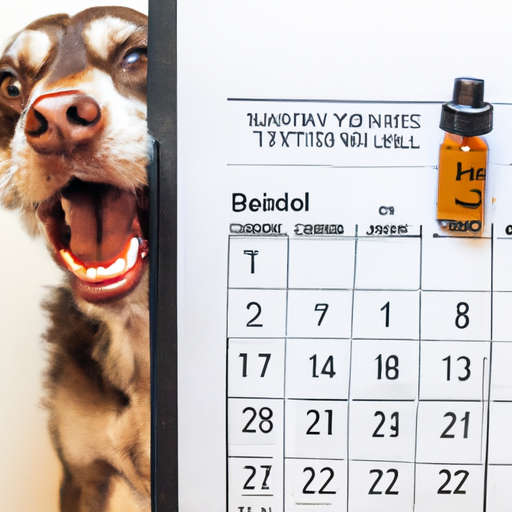As a dog owner, it’s your responsibility to ensure the health and wellbeing of your furry friend. A vital part of this responsibility involves keeping up with their vaccination schedule. One vaccine that is often overlooked or misunderstood is the Bordetella shot. This vaccine protects your pet from kennel cough, a highly contagious respiratory disease.
Table of Contents
- What is Bordetella and Why is the Vaccine Important?
- How Often Do Dogs Need Bordetella Shots?
- Factors That Can Influence the Frequency of Bordetella Shots
- Risks and Side Effects of the Bordetella Vaccine
- Frequently Asked Questions
Key Takeaways
- Bordetella, also referred to as kennel cough, is a highly contagious respiratory disease in dogs.
- The Bordetella shot is typically recommended annually but may be needed more frequently in specific situations.
- Factors such as your dog’s age, health condition, lifestyle, and environment can influence the frequency of Bordetella shots.
- Though generally considered safe, the Bordetella vaccine can have potential side effects.
What is Bordetella and Why is the Vaccine Important?
Bordetella, commonly known as kennel cough, is an infectious disease that affects the respiratory system of dogs. The disease is named after the bacteria that often cause it, Bordetella bronchiseptica. It is highly contagious and can cause symptoms like a persistent cough, nasal discharge, and in severe cases, pneumonia.
The Bordetella vaccine is crucial to protect your dog from this disease. While kennel cough is not typically life-threatening, it can be severe in puppies, older dogs, or dogs with compromised immune systems. Even in healthy dogs, it can cause discomfort and distress due to persistent coughing. The vaccine is especially important if your dog frequents areas where many dogs gather, such as dog parks, boarding facilities, or dog shows, as these are prime environments for the spread of kennel cough.
How Often Do Dogs Need Bordetella Shots?
There’s no one-size-fits-all answer to this question as it depends on several factors. However, most veterinarians recommend that dogs receive a Bordetella shot annually. This frequency ensures that your dog’s immunity stays up to date and can effectively fight off the disease if exposed.
That said, under certain circumstances, your vet may recommend more frequent vaccinations. If your dog is regularly in contact with many other dogs, such as in a boarding facility or dog daycare, they may need a Bordetella shot every six months. This is because the risk of exposure to kennel cough is significantly higher in these environments.
You can find more information on the Bordetella vaccine frequency on the American Kennel Club’s website
Factors That Can Influence the Frequency of Bordetella Shots
Several factors can influence how often your dog needs a Bordetella shot:
- Age: Puppies usually receive their first Bordetella shot between 6 to 8 weeks of age, followed by booster shots every six months until they reach a year old. After that, most dogs only need an annual shot.
- Health Condition: Dogs with compromised immune systems or chronic respiratory conditions may need the vaccine more frequently.
- Lifestyle: Dogs that spend a lot of time in high-risk environments, like kennels, dog parks, or grooming salons, are at a higher risk of contracting kennel cough and may need more frequent vaccinations.
- Environment: If there has been a recent outbreak of kennel cough in your area, your vet may recommend an additional booster shot.
Here’s a comprehensive guide from One Top Dog to help you understand more about your dog’s vaccination needs.
Risks and Side Effects of the Bordetella Vaccine
Like any vaccine, the Bordetella shot can have potential side effects. These are typically mild and go away on their own. Some common side effects include:
- Mild cough or nasal discharge
- Fever
- Decreased appetite
- Lethargy
In rare cases, dogs may have an allergic reaction to the vaccine. If your dog shows signs of severe distress, such as difficulty breathing, swelling, or hives, after receiving a Bordetella shot, seek veterinary care immediately. You can read more about vaccine reactions in dogs here.
Frequently Asked Questions
Q: Can my dog still get kennel cough even if they’ve had the Bordetella shot?
A: While the Bordetella vaccine significantly reduces the risk of kennel cough, it doesn’t completely eliminate it. This is because kennel cough can be caused by various pathogens, not just Bordetella bronchiseptica. However, vaccinated dogs that do contract kennel cough usually experience milder symptoms.
Q: My dog never goes to kennels or dog parks. Do they still need the Bordetella shot?
A: While dogs that frequent high-risk environments are more likely to contract kennel cough, the disease can still spread in other ways, such as through the air or contaminated surfaces. Therefore, even dogs that don’t often interact with other dogs can benefit from the Bordetella vaccine.
Q: Can humans catch kennel cough from dogs?
A: It’s extremely rare, but possible, especially for people with weakened immune systems. However, in most cases, kennel cough is not a zoonotic disease, meaning it doesn’t typically pass from animals to humans.
In conclusion, ensuring your dog is up-to-date with their Bordetella shot is crucial to prevent kennel cough. Always consult with your vet to determine the best vaccination schedule for your pet. If you need more information about keeping your dog’s health in check, check out this helpful article.



